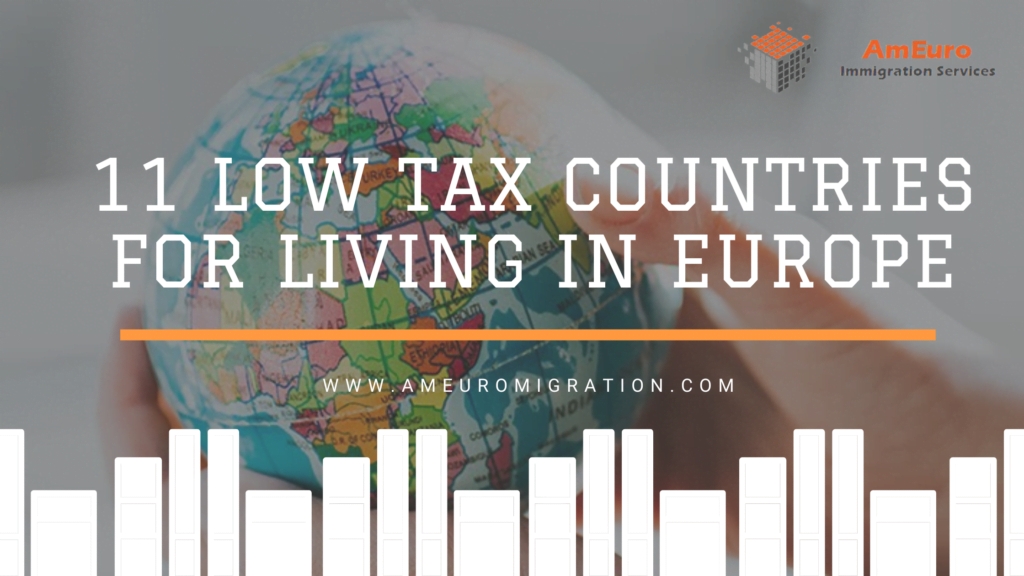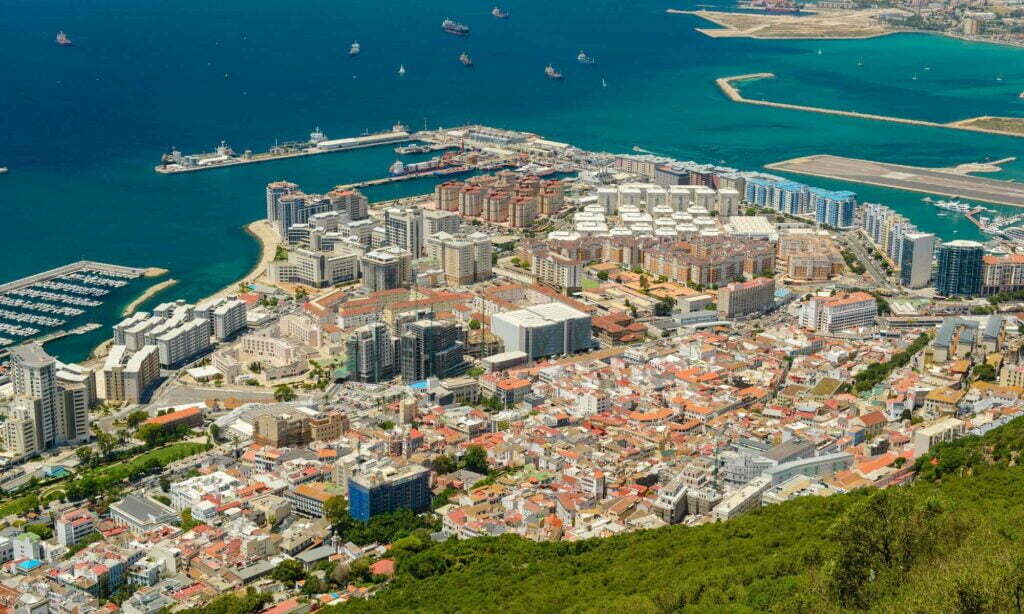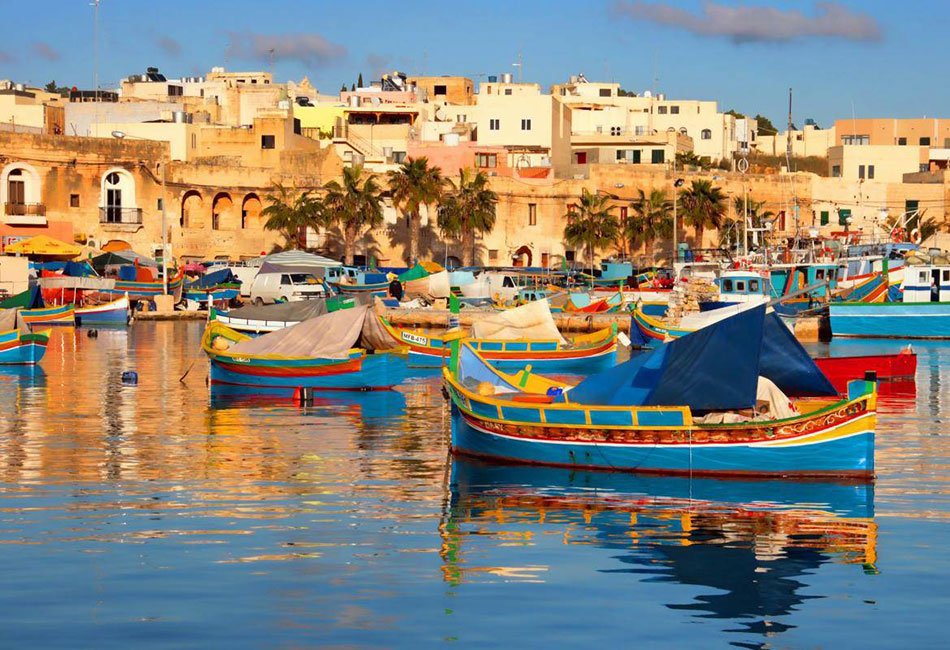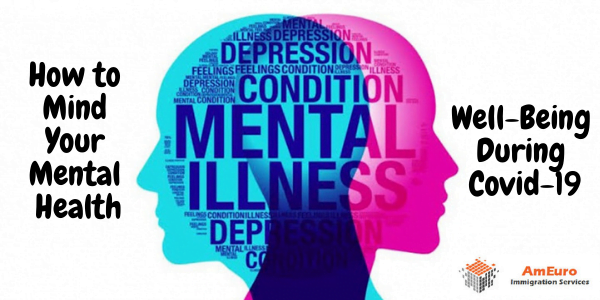Ever dreamed of living in Europe?
Many of us have.

However, Europe’s stereotypically high tax rates have turned many successful entrepreneurs and investors away from the idea in search of zero-tax countries in the Caribbean, Middle East, or the Pacific Ocean.
Here’s the deal: while living in Europe and paying zero income tax is a rare feat, it is possible for almost anyone to live in Europe full-time and pay low taxes on their income… even if they’re not a millionaire.
I’m not talking about living like a digital nomad. Sure, it’s possible to spend three months in the summer living in Europe, then spending another few months further south in a country like Serbia. So long as you don’t establish tax ties in any one country, your only concern is making sure you aren’t on the hook for taxes in your home country.
However, as I increasingly work with seven- and eight-figure business owners, one recurring theme I hear is the desire for a home. For many successful people, dragging a suitcase around the world just isn’t their thing. They want a (nearly) full-time home AND the benefits of minimal taxation.
That’s where low tax countries come in.
The good news is that you don’t have to move to the Bahamas or Dubai to enjoy low tax countries rates so long as you’re able to invest some of your money in Europe. While some countries like France will always be off-limits to those seeking excellent tax planning, We’ve made a list of nearly a dozen European countries with favorable tax rates.
Canada immigration consultants in Delhi
1. ANDORRA

Nestled into the mountainside, this medieval village shows the beauty of the Andorran countryside.
Pressure from the European Union caused Andorra to implement its first ever income tax in 2015, but Andorra still remains a low tax haven conveniently nestled between high-tax Spain and France.
Long known as a destination for duty-free shopping, Andorra is an idyllic mountainous country that also happens to offer residence permits to investors and business owners. Fortunately, Andorra has positioned itself to attract those of more average means than other low tax countries like Monaco.
Andorra is perfect for those with capital gains or generational wealth; it has no wealth tax, no gift tax, no inheritance tax and the only capital gains tax is assessed on most sales of Andorra real estate.
The only tax is an income tax, of which a generous 24,000 euros is exempt, and the top rate of 10% takes effect at the 40,000 euro level.
Unless you’re well-noted in your field, there are two ways to qualify for residence: make an investment or start a company. Either way, you’ll need to pledge to spend 90 days per year living in Andorra, rent or own a property, maintain a bond, and maintain health insurance; many residents are exempt from the already low tax rates depending on how their income is earned.
To start a company, you will need to present your CV and a business plan, as well as deposit a 50,000 euro bond for a single applicant. This route requires far less upfront capital but you do need to actually run a business, which means living in Andorra should be part of your overall corporate and tax planning. If you prefer to be a passive resident, you may invest 400,000 euros in Andorra, which can include an investment in real estate.
2. BULGARIA

Bulgaria offers Eastern European city charm, plenty of beach resorts on the Black Sea… and a flat 10% tax rate with no minimum.
At a flat 10%, Bulgaria has the European Union’s lowest personal income tax rates. Corporate income tax rates are the same flat rate of 10% (tied with Cyprus), and Bulgaria maintains tax treaties with many countries that could allow for special tax treatment for some international entrepreneurs.
Basically, Bulgaria’s tax system is simple: live there and pay 10%. You can become a fiscal resident by living in Bulgaria for at least 183 days in a year, or by convincing the tax office that Bulgaria is your “center of life”. While merely staying in the country is often easier, the “center of life” test gives you more flexibility and involves a number of factors.
Eastern Europe is one of the world’s most underrated places for living in my opinion, although out of the Balkan countries I would personally prefer living in Serbia or Romania. That said, Bulgaria has the advantage of being a rather open place to operate, with bank accounts being easy to open and a substantial low-tax offshore company industry attracting plenty of entrepreneurs and capital.
3. CZECH REPUBLIC

Despite being a top tourist destination in Europe, Prague has one of the cheapest costs of living in central Europe.
The Czech Republic is often ignored as a low tax jurisdiction despite the fact that it has streamlined both personal and corporate income tax rate to reasonable levels. Considering that Prague is one of the most cooed-over cities in Europe, the idea of living in the Czech Republic is worth considering.
As a low-tax residency, the Czech Republic (or Czechia, as they prefer) is best suited for European Union citizens. That’s because self-employed Europeans can not only avail themselves of Czechia’s 15% flat tax rate but may also apply a lump sum tax deduction in lieu of actual expenses. For most business owners, the lump sum can reduce the flat tax by 40% or 60%, leaving an effective tax rate of 6% or 9% on self-employed entrepreneurs.
Like Portugal and other European Union countries, real tax planning is required if you choose to live in Czechia. For one thing, you will need to rent or own an actual home; the good news is that the cost of living in Prague is surprisingly low given how popular the city is for tourists and digital nomads.
4. GEORGIA

Georgia has a diverse tourism landscape. For instance, Mtskheta, Georgia is home to a UNESCO world heritage site.
While Georgia may not be in the center of Europe, its position in the Caucasus places it squarely between eastern Europe and Asia. Fun fact: Georgia also happens to be the only European country with a largely territorial tax system, meaning properly structured foreign source income is not taxed in most circumstances.
For non-US citizens, it is easy to create an international structure and pay zero tax on profits while being a legal resident of Georgia. It is also possible to maintain a part-time home base in Georgia without incurring tax obligations. You can even become tax resident without living in Georgia if you can prove wealth or high income.
While Georgia’s capital of Tbilisi is not Paris, Georgia is one of the safest countries in the world and a favorite of ours here at Nomad Capitalist. The cost of living is extremely low, and activities like smoking and gambling are extremely cheap compared to the highly over-regulated European Union.
5. GIBRALTAR

Gibraltar offers residence visas to wealthy investors willing to pay an annual flat tax.
Gibraltar has long been a popular tax residence for British citizens, but Gibraltar’s benefits as a low-tax residence are available to anyone. Nestled at the southern tip of Spain, Gibraltar is a British Overseas Territory and not a sovereign country, but is able to set its own tax policies.
There are two ways to become resident in Gibraltar: start a company or demonstrate a high net worth. As is usually the case with these programs, it is easier for entrepreneurs to qualify by forming a company but proving wealth is easier in the long run.
The High Executive Possessing Specialist Skills method, or HEPSS, allows entrepreneurs with Gibraltar companies to pay a maximum tax on their salary. You must earn more than £120,000 per year, but will only be taxed on £120,000. That essentially translates to a flat tax of £29,940, although you must also consider any Gibraltar corporate tax. You will need to own or lease a home in Gibraltar.
The Category 2 visa program is also appealing but requires a £2 million – roughly $2.5 million – net worth to qualify. There are few requirements besides proving this level of wealth; the main requirement is to purchase or lease a “qualifying” home.
Other than that, you may not carry out almost any business within the territory of Gibraltar. You will pay a minimum annual tax of £22,000, and a maximum annual tax of £28,360 based on Gibraltar’s oddly progressive-but-then-regressive income tax rates ranging from 10% to 29%.
6. MALTA

Malta allows foreign citizens to pay an annual flat fee and exempt their foreign income from Malta tax
Malta is one of only four countries on this list that are part of the Schengen Area, and one of only three that are also part of the European Union. Malta has developed some of the EU’s most tax-friendly programs for both individual residents and corporations, with corporate tax rates as low as 5% possible for non-resident companies.
Malta has long had a flat-fee residence program available, but as I have discussed in the recent post the newer Global Residence Program has become the second residency of choice. Unlike Andorra and Monaco, Malta does not require any physical presence on its two Mediterranean islands, meaning you can establish residency but not live there at all. Furthermore, they have prided themselves on reducing bureaucracy and even allowing residents to include domestic staff on their applications (similar to Malaysia’s MM2H program).
Maltese residents are not subject to tax in Malta on foreign sourced income that is kept outside of the country. What’s more, they are not subject to tax on foreign capital gains even if those gains are sent to a Malta bank account. Other income, including pensions, can be taxed once at a flat 15% thanks to Malta’s tax treaty network.
The cost of maintaining the residence in Malta is a flat 15,000 euro “minimum tax” payable each year. With proper planning, this should also be the maximum tax. It is also possible to obtain a tax residence certificate.
7. MONACO

Monaco eliminated income taxes entirely in 1869, making it the only sovereign zero-tax jurisdiction in Europe.
While Monaco is not a full member of the European Union, it is a de facto participant in the borderless Schengen Area, offering excellent mobility. Monaco’s exclusivity and proximity to France and the rest of Europe make it a more serious tax residency than some tiny island in the middle of the ocean.
According to the tiny principality, it is not a tax haven. It does allow foreigners to establish residence in Monaco merely by proving their wealth. Doing this generally requires a 500,000 euro bank deposit and purchase (or in some cases, rental) of a property there.
Seeing that parking spaces can often sell for up to 1 million euros, residence in Monaco is reserved for the wealthiest entrepreneurs and investors. It’s also reserved for those actually willing to live there; you must spend three months per year for the first nine years, at which point you can obtain what is effectively permanent residence but requires 183 days of stay per year.
If you’re interested in getting a residency or second passport in Monaco, we have just published our Ultimate Guide where you can get all the details.
8. MONTENEGRO

Montenegro has low corporate taxes and is one of the least expensive countries in Europe to start a company.
Montenegro boasts the lowest headline personal income tax and corporate income tax rates in Europe, both pegged at a flat 9%.
Like many of its western Balkan neighbors, Montenegro has sought to attract business to its small country – population: 620,000 – by lowering tax rates. While almost all of eastern Europe offers rather reasonable tax rates in the teens, Montenegro offers the lowest tax rates and the benefit of a country you might actually want to live in.
Locals know Montenegro as Crna Gora, meaning “black mountain”, but the Italian name stuck and gives the country an air of sexiness by sounding similar to Monaco. Personally, I believe it is a completely stunning place to visit during the summer season, which is why I purchased my beach house for holiday getaway right there, where I relax, do some writing and enjoy the sunsets and Mediterranean cuisine.
Montenegro’s government seems to have played to that notion, inviting foreign investors to develop luxury resorts on its pristine coastline in a bid to be the jewel of the Adriatic Sea. It was enough to attract me to buy a home in Montenegro.
Montenegro allows foreigners who buy residential property to obtain a temporary residence card, renewable yearly. If you spend fewer than 183 days in Montenegro, you will generally not be taxed. If you live in Montenegro the majority of the time, you will become tax resident and be liable to pay the flat 9% rate on your income.
While Montenegro isn’t a zero-tax country for full-time residents, it is a very attractive home base primarily for Europeans seeking a legitimate low-tax residency to appease their home government.
9. PORTUGAL

Even though Portugal is a high tax country, foreigners can take advantage of a ten-year Non-Habitual Resident Tax exemption that exempts up to 100% of their income from Portuguese tax.
Most people don’t associate Portugal with low tax countries.
In most cases, they’re right; Portugal is hardly a tax rate favorable place for the average resident. However, foreigners can take advantage of a ten-year Non-Habitual Resident Tax exemption that exempts up to 100% of their income from Portuguese tax.
While this exemption doesn’t allow you to live in Portugal tax-free forever, it is long enough to allow you to claim Portugal citizenship if you meet the rather lenient physical stay requirements.
The first step to living in Portugal is to obtain Portugal residency; this can be done by purchasing real estate through the well-known Golden Visa program, but can be done more easily by hiring people or by merely proving you have rental income overseas.
There is a catch, though: the most tax-optimized structures won’t qualify for Portugal’s tax exemption. Income from blacklisted tax countries is not subject to exemption, meaning your offshore company in the BVI or Hong Kong won’t work. Substantial tax planning is needed to ensure that all of your business and passive income is structured to eliminate taxes while you live in Portugal.
10. SWITZERLAND

Switzerland was one of the first countries to allow wealthy taxpayers to negotiate a flat annual tax with its cantons
There is no doubt that Switzerland has become less friendly both for immigration and banking in recent years. That said, it is still one of the safest and most respected countries in the world with a location at the heart of Europe. Swiss residency offers an air of legitimacy that many other low-tax residencies can’t match. Foreigners have two residency options to choose from.
The first is to form a new company in Switzerland and hire local employees. This company will pay corporate income tax based on which canton (region) it is incorporated in, and you as the manager will pay Swiss income tax.
The more common and lower tax method to living in Switzerland is the Lump Sum Taxation method, also known as “taxation according to expenditure”. Under this method, a family may move to Switzerland and pay a flat annual tax based on their cost of living rather than their actual income. This has often been described as negotiating a flat tax, and each canton has their own policies.
Generally speaking, expect to pay at least $150,000 and up to $1 million in flat tax each year depending on which canton you want to live in. You will also not be able to legally reside in Zurich. If your income exceeds $1 million each year, maintaining your home and tax residency in Switzerland would give you a moderate tax rate. If your income is in the millions, Switzerland could reduce your tax rate below 10%. While Switzerland is hardly a cheap place to live, it has one of the highest standards of living in the world.
11. UNITED KINGDOM

The UKis far from a tax haven, but there are certain exemptions from the rule when it comes to tax rates, which you can take advantage of if you’re a wealthy entrepreneur.
Like Portugal, the United Kingdom isn’t exactly a haven in terms of low tax countries for all… but it is for a select group of wealthy individuals. By exploiting the difference between domicile and residence, certain foreign citizens can live in London and pay an annual flat tax.
This “non-dom” system has been popularized thanks to Middle Eastern and Russian billionaires who take up residence in the United Kingdom yet claim they are not running their businesses from Kensington. Because their income is a foreign source, it is eligible to be taxed on a remittance basis; keep the income out of the UK and it is not taxed.
Obtaining residency in Britain requires a substantial investment, but for the right person, the tax benefits outweigh the initial costs. Claiming non-dom tax benefits may be free for up to six years, after which the remittance basis charge is anywhere from £30,000 to £90,000 depending on how long you’ve been a resident.
Tax residence in the UK is a highly complicated topic and always worth discussing at length with a tax professional before claiming any benefits, particularly as some non-dom benefits must be claimed in advance.
Get More – Germany immigration consultants in Delhi


